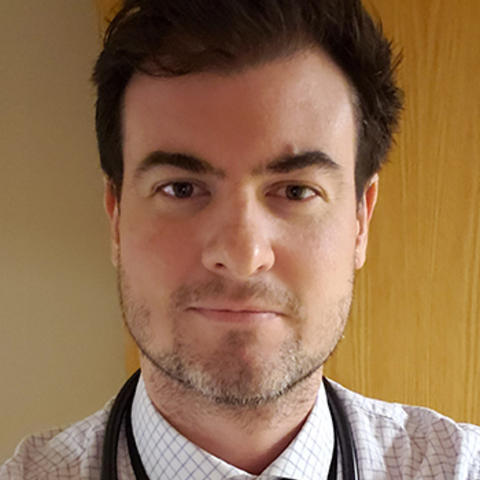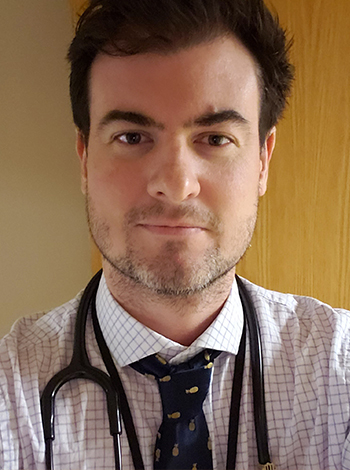Faculty

Bio
I received my BA in psychology from the University of Nevada, Reno, and went on to earn a Ph.D. in Clinical Psychology from the University of Wisconsin-Milwaukee in 2010. I completed a pre-doctoral internship and post-doctoral fellowship in child mental health at the Alpert Medical School of Brown University. My training and career development have been supported by T32, F32, and K23 awards from the National Institute of Mental Health (NIMH). Prior to joining the Department of Psychiatry & Behavioral Sciences faculty, I was an Assistant Professor (Research) at Brown Medical School and a Psychologist at Rhode Island Hospital and Bradley Hospital.
I am a clinical psychologist with research and clinical expertise in the area of neurodevelopmental disorders, with an emphasis on Tourette Syndrome/tic disorders, obsessive-compulsive spectrum disorders, and anxiety disorders. I am the Co-Director of the Converging Approaches to Neurodevelopment (CAN) Lab, a research group that focuses on studying the causes and treatment of neurodevelopmental disorders. Our research integrates behavioral and neuroscience methods, including neuromodulation, brain imaging, and video-based symptom quantification. My current major projects include clinical trials to identify mechanisms of cognitive behavioral therapy (CBT) response and to test augmentation of CBT with non-invasive neuromodulation. I also collaborate with faculty in the Department of Computer Science and Engineering to use computer vision approaches to quantify atypical movements associated with neurodevelopmental and psychiatric disorders.
Within the university, I am the Director of the Novel Interventions & Neuromodulation Core at the Masonic Institute for the Developing Brain (MIDB). In this role, I oversee the MIDB Non-Invasive Neuromodulation Lab and support MIDB investigators conducting cutting-edge interventions research focused on critical neurodevelopmental periods.
Expertise
- Neurodevelopmental disorders
- Tourette syndrome
- Obsessive-compulsive disorders
- Anxiety disorders
Administrative Assistant
(for academic support only)
Shelly Slominski
slomi001@umn.edu
In the Media
- 2023: Featured in this article titled, “NIH grant supporting U of M research that could result in a quantifiable way to diagnose Tourette syndrome.”
- 2023: Quoted in this article posted by Fatherly titled, “If You’re Trying To Raise A ‘Happy Child,’ You’re Missing The Point.”
- 2023: Featured in this article in the U’s Discovery magazine titled, “Heads Together,” about their collaboration to help kids with neurodevelopmental disorders
- 2022: Featured in video titled "Tackling Psychiatric Illness Using Translational Models and Computations", shot as part of the American Psychiatric Association's Conference TV with funding from NeuroPRSMH (NeuroPlasticity Research in Support of Mental Health), the U’s multidisciplinary neuroscience research group
- 2021: Featured in this interview titled, "Tik Tok may be influencing tic disorders in children".
- 2020: One of many physicians featured in the Minneapolis StarTribune who participated in protests against police killing Black men on April 17 (seen holding the “Policing is a Public Health Crisis" sign)
Research Summary
Dr. Conelea's research focuses on the etiology and treatment of Tourette Syndrome and other tic disorders, Obsessive Compulsive Disorder (OCD), and anxiety disorders. She is particularly interested in understanding how the brain, environment, and psychosocial factors interact to impact symptoms and treatment outcome. Dr. Conelea's research integrates behavioral and neuroscience methods, including neuromodulation and brain imaging. Additional interests include therapeutic process and mechanism of change in cognitive-behavioral therapy.
Teaching Summary
Dr. Conelea provides training and supervision for clinical psychology and psychiatry students, residents, and fellows in the University of Minnesota Medical School.
Clinical Summary
Dr. Conelea's clinical interests include Tourette Syndrome; tic disorders; Obsessive Compulsive Disorder; anxiety disorders; and cognitive-behavioral therapy.
Education
Fellowships, Residencies, and Visiting Engagements
Honors and Recognition
Professional Memberships
Selected Publications
Selected Presentations
Contact
Address
Masonic Institute for the Developing Brain, 2025 E River Pkwy, Minneapolis, MN 55414

Bio
I received a BA in Microbiology, and completed medical school and my psychiatric residency here at the University of Minnesota. I was Chief Resident and completed a fellowship in Consult-Liaison Psychiatry. I am an adult psychiatrist and focus on eating disorders. I am board certified in psychiatry by the American Board of Psychiatry & Neurology. I have developed a strong record in research and scholarship in eating disorders. I am grateful to have received a NAMI Exemplary Psychiatrist Award (2008) and a Price Foundation NEDA Award for Research Excellence (2015). My work has been funded by NIMH and I have published over 300 peer-reviewed articles, and have presented nationally and internationally. I am the Editor in Chief of Eating Disorders Review, and a member of the Editorial Boards for The International Journal of Eating Disorders, European Eating Disorders Review, and Eating Behavior. I have served as President of the Minnesota Psychiatric Society, and of the Academy for Eating Disorders.
Research Summary
Eating Disorders Obesity
Clinical Summary
Eating disorders
Contact
Address
F290/2A West2450 Riverside Ave
Minneapolis, MN 55454

Bio
I am a tenured Professor in the Department of Psychiatry and Behavioral Sciences and the Director of the Division of Child and Adolescent Mental Health. My program of research is examining the neurodevelopmental underpinnings of depression, self-injury, and suicide risk in adolescents and young adults. I have also been testing the efficacy and mechanisms of novel interventions (including neuromodulation, pharmacology probing oxidative stress and glutamate systems, and creative arts-based approaches) aimed at promoting recovery and thriving in these youth.
Expertise
- Depression and non-suicidal self-injury
- Child and adolescent suicide
- Bipolar disorder
- Borderline personality disorder
- Obsessive-compulsive disorder
Administrative Assistant
(for academic support only)
Molly Jokimaki
jokim004@umn.edu
In the Media
- 2023: Featured in this Medical School article titled, “Keeping an Eye on Children's Mental Health During the Summertime.”
- 2023: Featured in this Medical School article about children’s use of social media titled, “Talking social media and mental health with U of M.”
- 2023: Featured in this article titled, “Strategic planning process in the Division of Child and Adolescent Mental Health creates a vision for the future.”
- 2023: The focus of this article titled, “Minnesota collaborators work with colleagues in Japan to create course aimed at increasing undergraduate well-being.”
- 2023: Featured in this UMN Giving article titled, “Creativity and the brain".
- 2022: Offers timely advice to parents & caregivers in this M Physicians article titled, "Back to School: Let's Talk Mental Health". She says, "School is the biggest challenge for children." She was also featured on MPR talking about recent studies that seem to delink serotonin levels from depression. “It’s complicated,” she said.
- 2022: Featured in this article titled, "Interprofessional collaboration at the U aims to improve mental health treatment for children and adolescents".
- 2022: Coauthor of a study featured (although not named) in this MIDB article: "First Study to Evaluate Neurobiological Predictors of Interpersonal Psychotherapy for Depressed Adolescents".
- 2022: Quoted in this Wall Street Journal article titled, "What Parents Can do When Kids Have Suicidal Thoughts".
- 2021: Interviewed for this piece titled, "Life at the new Masonic Institute for the Developing Brain brings integration in care and learning, and opens opportunities for collaboration".
Research Summary
Dr. Cullen's research primarily focuses on depression and self-injury in adolescents. Her research approaches include the use of brain imaging to examine the biology of depression and self-harm, elucidate the mechanisms of existing treatments, and develop novel treatments.
Clinical Summary
Dr. Cullen is the Director of the Child and Adolescent Mood Disorders Clinic, which is housed in the Dept. of Psychiatry Clinic on the 2nd floor, West Building, on the Riverside campus. This clinic is designed to provide comprehensive diagnostic evaluations and evidence-based treatments to children and adolescents with mood disorders. Dr. Cullen also works on the adolescent subacute unit (Adolescent Crisis, Lodging and Stabilization Services) located on the 4th floor, West Building, on the Riverside campus.
Education
Fellowships, Residencies, and Visiting Engagements
Licensures and Certifications
Honors and Recognition
Professional Memberships
Selected Publications
Selected Presentations
Contact
Address
Masonic Institute for the Developing Brain, 2025 E River Pkwy, Minneapolis, MN 55414

Research Summary
Neuroimaging Psychopathology Traumatic Brain Injury Neuropsychology

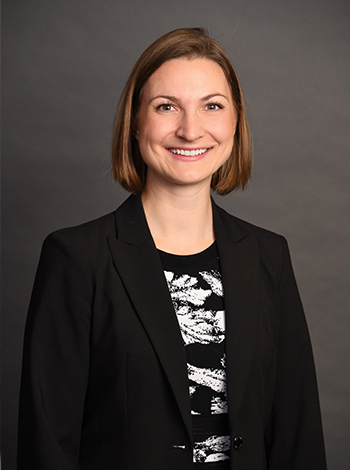
Bio
I am an Assistant Professor in the Department of Psychiatry & Behavioral Sciences and a licensed psychologist in the state of Minnesota. I completed my BA in psychology and sociology here at UMN and received my MA and PhD in Clinical Psychology from the University of Maryland. I completed internship training at the Massachusetts Mental Health Center within Harvard Medical School. Prior to joining the department, I was a postdoctoral associate in the Cognition and Brain in Psychopathology Lab led by Scott Sponheim and in the Translational Research in Cognitive and Affective Mechanisms Lab led by Angus MacDonald III in the Department of Psychology at UMN.
My research focuses on identifying risk factors and mechanisms underlying psychosis that can serve as novel, neuroplasticity-based intervention targets. My overarching research goal is to improve outcomes in psychotic disorders by enhancing early detection and improving treatments.
Administrative Assistant
(for academic support only)
Natasha Hampton-Anderson
nhampton@umn.edu
In the Media
- 2023: The focus of this article titled, “Investigating the causes of mental illness key focus for new faculty member.”
Education
Professional Memberships
Languages
Selected Publications
Selected Presentations
Contact
Address
Department of Psychiatry & Behavioral Sciences, F282/2A West Building, 2450 Riverside Avenue South, Minneapolis, MN 55454

Research Summary
Trauma-related disorders (e.g. PTSD, traumatic brain injury) Genetics (e.g. polygenic risk scoring, genome-wide association studies) Neuroimaging (e.g. structural and functional MRI) Cognitive assessment Rehabilitation outcomes


Bio
Administrative Assistant
(for academic support only)
Natasha Hampton-Anderson
nhampton@umn.edu
Professional Memberships
- Development and Psychopathology- Ad Hoc Reviewer
- Society for Research in Child Development
- Society for Prevention Research
- Developmental Origins of Health and Disease (DOHaD) Society
- American Psychological Association
Education
Fellowships, Residencies, and Visiting Engagements
Honors and Recognition
Selected Publications
Selected Presentations
Contact
Address
Masonic Institute for the Developing Brain, 2025 E River Pkwy, Minneapolis, MN 55414

Grants and Patents
Selected Grants
Contact
Address
628 Diehl H505 Essex St SE
Minneapolis, MN 55455


Bio
I received my BS in Biology from Baylor University, Texas. I completed my masters and PhD in Human Anatomy from the University of Nebraska Medical Center. I obtained my MD from Case Western Reserve University, and further completed three postdoctoral fellowships in Pharmacology, Biochemistry (University of Texas Health Sciences Center), and Anatomy (McGill University, Canada).I am a Professor of Psychiatry and Neuroscience and Emeritus for the Bernstein Professorship in Adult Psychiatry at the University of Minnesota Medical School and my research has focused on the biological basis of neurodevelopmental disorders, primarily autism and schizophrenia. I have over 140 publications, nearly 9000 citations and an h-index of 49.My clinical interests have focused on the treatment of schizophrenia, bipolar disorder, and major depression. I have over 20 years of experience in research and treatment of major psychiatric disorders. I am an Elected Fellow of the American College of Psychiatrists, an Elected Fellow of the American College of Neuropsychopharmacology, and a Fellow of the Collegium Internationale Neuropsychopharmacologicum.Within the medical school and university, I am the Academic Advisor for 3rd and 4th year medical students, and the medical student admissions interviewer. I am also the High School Summer Research Apprenticeship Program Supervisor. Within the department, I am a member of the Psychiatry Residency Committee , Residency Training Committee , and on the Medical Student Clerkship Education Sub-Committee .
Research Summary
Dr. Fatemi's research focuses on the neurodevelopmental mechanisms that contribute to normal structure and function of the brain and which, under certain circumstances, cause neuropsychiatric disorders. His research has been conducted on two levels: one at the level of human brain dysfunction (postmortem studies involving schizophrenic, depressed, bipolar, and autistic patients) and secondly on development of an animal model to mimic schizophrenia and autism (prenatal viral infection in mice). Dr. Fatemi has also investigated the effects of various psychotropic agents, e.g., olanzapine, clozapine, fluoxetine, valproic acid, haloperidol, and lithium, on expression of genes of interest in rats following chronic administration of each drug. The ultimate goals of Dr. Fatemi's research are to better understand the genesis of these disabling disorders and to treat patients afflicted by them. Dr. Fatemi's research has been funded by multiple grants from the National Institutes of Health, the Stanley Medical Research Institute, the National Alliance for Research in Schizophrenia and Depression, and the Minnesota Medical Foundation. His research has been published in top journals including Molecular Psychiatry, Synapse, Molecular Autism, and Translational Psychiatry. Dr. Fatemi has published 121 articles, 33 book chapters, and edited five books. Dr. Fatemi is an Associate Editor of Cerebellum and Ataxias, a Regional Editor (USA) for Central Nervous System Agents in Medicinal Chemistry, and on the editorial boards of multiple journals including Molecular Psychiatry, PLoS One and Pharmacopsychiatry.
Contact
Address
420 Delaware St. SEMMC 392
Minneapolis, MN 55455
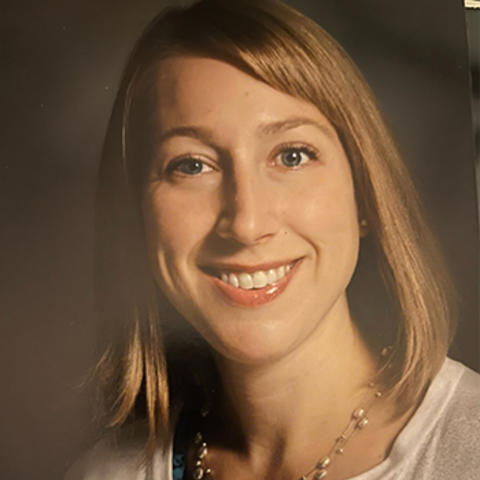
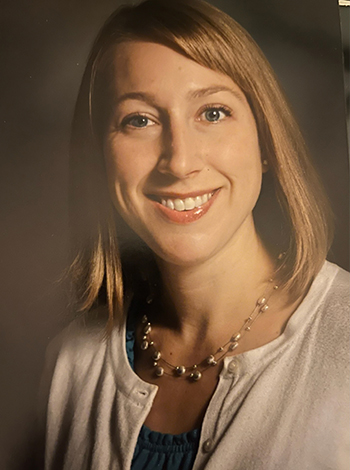
Research Summary
Trauma-related disorders Substance use Eating disorders
Clinical Summary
Dr. Ferrier-Auerbach is involved in psychotherapy and psychological assessment at the Minneapolis VA. Her primary theoretical orientation is cognitive behavioral. Much of her clinical work involves the provision of evidence-based psychotherapies for trauma-related disorders, depression, and anxiety.


